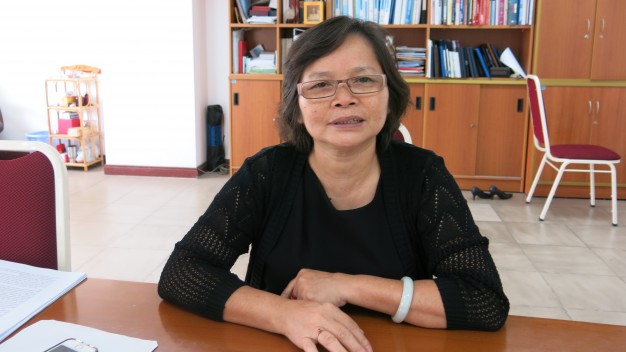Vietnam is scheduled to apply zero import duties on more than 1,700 tariff lines from the beginning of next year under an ASEAN trade pact, but this does not mean the market will be flooded with products originating from the ten-country bloc, a local trade official has said.
Starting January 1, 2015, Vietnam will have to reduce the five percent import duty on 1,720 tariff lines to zero percent in compliance with the ASEAN Trade in Goods Agreement (ATIGA).
A tariff line is a product defined in the lists of tariff rates, according to the glossary of the World Trade Organization.
ASEAN is a ten-member bloc which includes such Southeast Asian countries as Indonesia, Malaysia, the Philippines, Singapore, Thailand, Brunei, Cambodia, Laos, Myanmar, and Vietnam.
“Most of the products made in the ASEAN countries will be subject to a zero import tax if they meet the ATIGA conditions on origin,” Nguyen Thi Bich, head of the International Cooperation Agency under the Vietnamese Ministry of Finance, told Tuoi Tre (Youth) newspaper in an interview published Wednesday.
The exports must have a regional value content of at least 40 percent to qualify for the tariff elimination, Bich said.
The regional value content indicates the percentage of originating content of a product.
The official added that this will thus diminish the likelihood that other countries, such as China, will transport their products to an ASEAN country before exporting them to Vietnam, Malaysia or Thailand.
The ATIGA, signed on February 26, 2009 during the 14th ASEAN Summit in Thailand, is intended to establish a single market and production base with free flow of goods by 2015 for the ASEAN Economic Community, according to the finance ministry’s website.
The trade pact took effect on May 17, 2010, under which Vietnam will have to eliminate import duties in three tranches, by January 1, 2013, 2014 and 2015, according to the ASEAN.org website.
Vietnam is given a flexibility condition to 2018 to zero import duties on ‘sensitive commodities’ including steel, automobiles and parts, according to Bich.
“Vietnam is negotiating to add fuel and cigarettes to this group of commodities,” she said.
“As for products that are crucial to the country’s agriculture such as sugar, salt, pork, poultry, eggs and tropical fruits, Vietnam is negotiating to maintain import duties on them at five percent.”
A zero import duty will allow ASEAN-made products to be sold at much cheaper prices in Vietnam, but Bich said the products will not penetrate the country en masse as this was not sudden news.
“I think ASEAN goods will not overwhelmingly enter Vietnam as the tariff elimination is a planned process that takes steps annually,” she said. “Vietnam has completed the tariff elimination in two tranches in 2013 and 2014.”
Vietnam used to post a trade deficit ranging from US$5 to $7 billion a year with ASEAN prior to 2012, according to the official.
But the trade gap has narrowed to $3 billion, Bich said.
Many Vietnamese-made products, such as mobile phones, plastics, and electronic parts are now competitive with ASEAN counterparts, she added.
“Vietnam’s exports to the ASEAN countries have expanded considerably over the last three years, whereas imports remain almost the same,” she said.
Like us on Facebook or follow us on Twitter to get the latest news about Vietnam!




















































